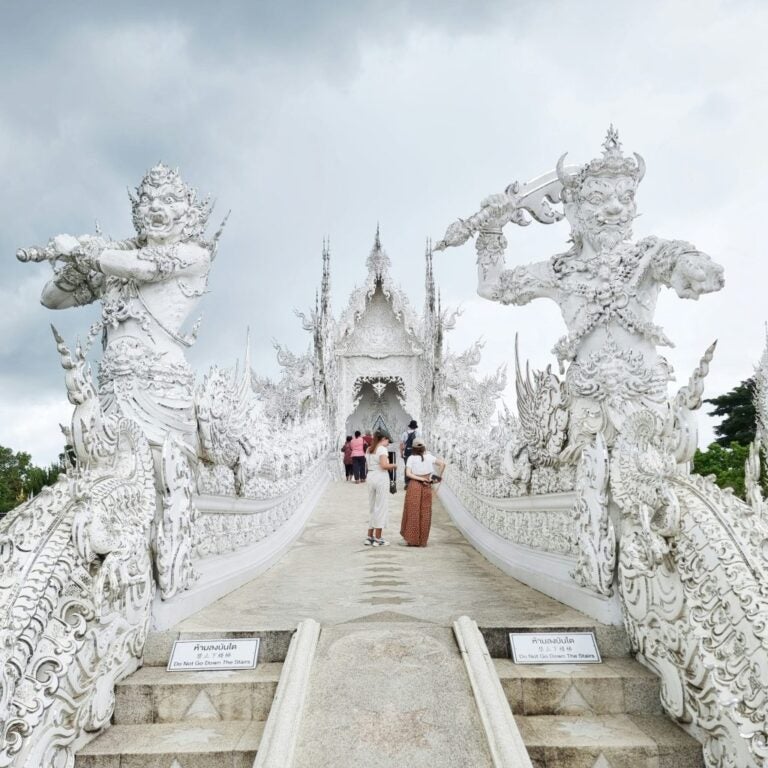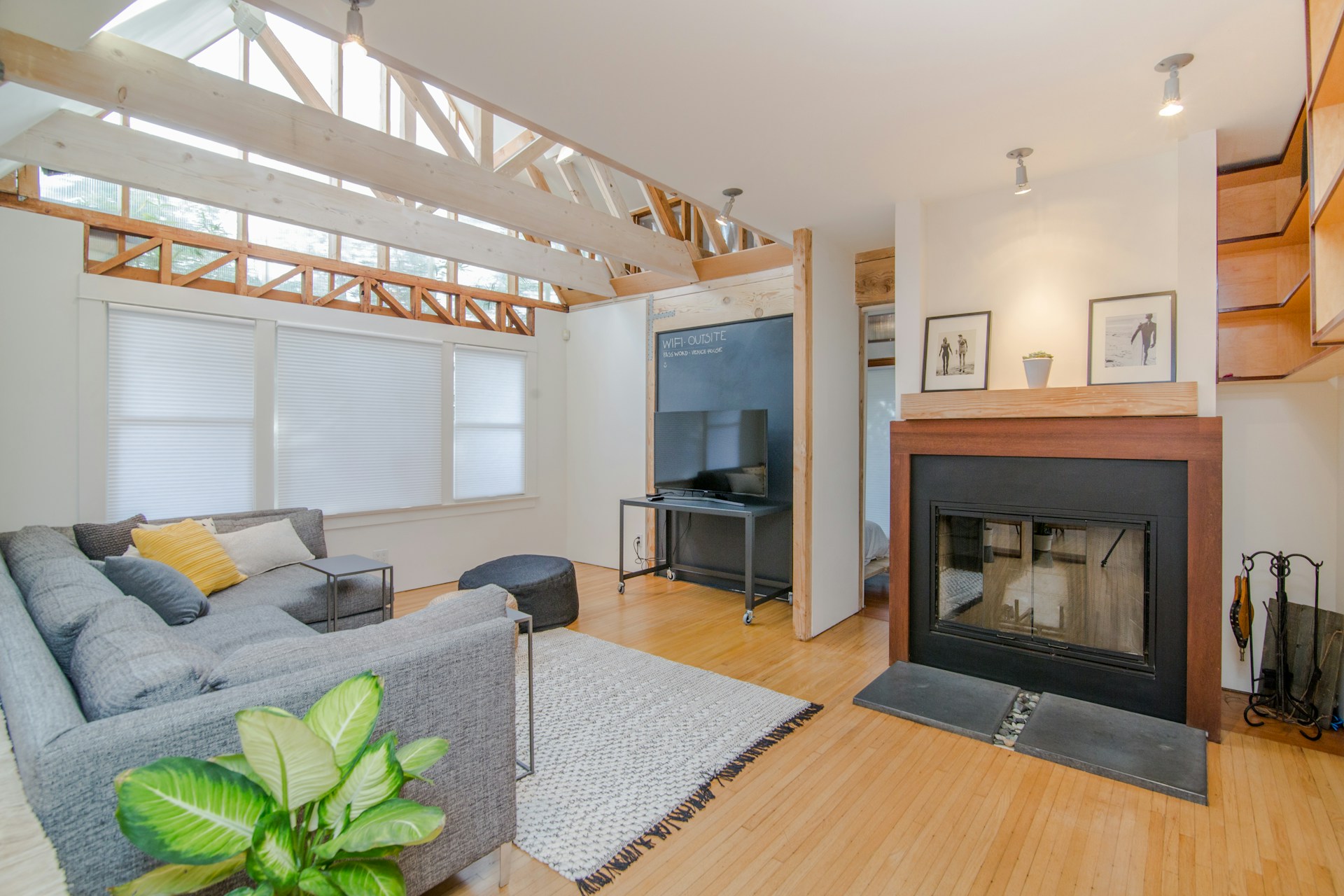Thailand for Digital Nomads: A Complete Travel and Work Guide
This is your ultimate guide to being a digital nomad in Thailand. Find out information on accommodation, visa options, leisure and more right here.
Unsurprisingly, Thailand is establishing itself as one of the most popular destinations for digital nomads in Southeast Asia. The mix of modern infrastructure, low cost of living, coworking options and a diverse leisure offer make the country an attractive option for those looking to work online and enjoy a flexible life. Its bustling capital Bangkok, the tranquil landscapes of Chiang Mai and the island paradises of the south are the destinations where you can live as a digital nomad in Thailand.
In this guide you will find essential information for making key decisions before and during your stay in the country, from visa options to suggestions on where to live, how to manage your finances and what transport and health insurance options to consider. Thailand offers you many possibilities as a digital nomad. Let’s take a look at them!
Why choose Thailand to live as a digital nomad?
Below, we explore the main benefits of this country for digital nomads:
Community and networking for digital nomads in Thailand
Cities such as Chiang Mai, Bangkok and Phuket have active communities of digital nomads who organise events, meetups and entrepreneurship programmes. These meetings are an opportunity to build networks, exchange knowledge and find job opportunities.
- Chiang Mai is known for its relaxed atmosphere and for hosting coworking spaces that organise social activities.
- In Bangkok the startup and tech ecosystem connects with local and international entrepreneurs.
- Islands such as Koh Phangan offer stunning beaches and yoga and wellness communities, ideal for those seeking a balance between work and leisure.
International connectivity and low-cost flights
Thailand has international airports in Bangkok, Chiang Mai, Phuket and Pattaya, facilitating travel in and out of the country. Low-cost airlines allow you to explore nearby countries such as Malaysia, Singapore and Vietnam with ease. In addition, air travel within the country is inexpensive, which makes getting between cities quick and affordable.
Technological infrastructure and internet access
Fast and stable internet access is essential for any digital nomad, and Thailand fulfils this need efficiently. In major cities and tourist destinations, connections are fast, with speeds ranging from 50 to 300 Mbps in coworking and public spaces. Many cafes offer free Wi-Fi, and mobile internet options with international eSIM cards such as HolaFly or local international prepaid SIMs are available.
Visas allowing legal residence in Thailand
There are several options in Thailand that allow you to reside and work in the country legally:
Tourist visa
The tourist visa is the easiest option for those wishing to stay for a short period of time. It allows an initial stay of 60 days, with the possibility of requesting an extension of an additional 30 days. This visa does not officially authorise work, but many remote workers use it for short periods of time.
- Cost: 35-50 USD.
- Extension: 1900 baht (approximately USD 50).
- Multiple-entry tourist visa: It has a maximum duration of 1 year and costs USD 191.
Thailand Elite Visa
The Thailand Elite Visa is an attractive option for those looking for a long-term stay. It offers residency for 5 to 20 years, access to VIP services at airports and other exclusive benefits.
- Cost: From USD 25,000 to USD 135,000, depending on the package you select.
Smart Visa
This visa is aimed at technology, innovation and entrepreneurship professionals. The Smart Visa allows you to reside in the country for up to 4 years without the need for an additional work permit.
- Benefits: Access to the health system, including work permit.
- Eligible sectors: Technology, finance and biotechnology.
- Cost: Approximately $290.
Where to live and work as a digital nomad in Thailand
As a digital nomad, Thailand offers a variety of cities and regions suitable for living and working, each with specific characteristics.
Bangkok
Bangkok is the capital and financial heart of the country, ideal for those seeking a dynamic city life. With a wealth of coworking spaces, hotels and short and long-term accommodation options, the city offers everything you need for a productive lifestyle.
- Coworking spaces: WeWork Bangkok, Hubba and The Work Loft.
- Recommended areas to live in: Sukhumvit and Silom.
Sukhumvit and Silom are two of the most recommended areas to live in Bangkok due to their infrastructure, convenience and the variety of services they offer, making them attractive to digital nomads. Yet, you can spend some days in Bangkok exploring if you prefer a different city.
Chiang Mai
Chiang Mai has become the hub for digital nomads in Thailand thanks to its laid-back atmosphere, affordable cost of living and specialised coworking spaces.
- Recommended Coworking spaces: Punspace, Yellow Co-Working.
- Accommodation: Nimmanhaemin Road is a popular area for its proximity to coworking spaces and coffee shops.
Phuket and the southern islands
Phuket, Koh Phangan and Koh Samui are some of the most popular islands among digital nomads. These islands offer a unique combination of beach and essential services for remote working, such as coworking spaces and co-living accommodation. Phuket also has an international airport which facilitates travel to other parts of Asia.
- Recommended coworking spaces in Phuket: Garage Society and Hatch Coworking Space
- Accommodation: Co-living options such as Coliving.com offer various options in Phuket and other regions of Thailand.
The southern islands are also famous for their nightlife and festivals, such as the Full Moon Party on Koh Phangan, which attract travellers from all over the world. However, it is important to note that the internet infrastructure may be more limited compared to Bangkok or Chiang Mai, so it is a good idea to check the quality of the Wi-Fi before renting long-term accommodation.

Taxes to be aware of in Thailand
Does a digital nomad pay local taxes in Thailand?
The Thai tax system stipulates that any person who spends more than 180 days in the country in a tax year is considered a tax resident. This means that he or she has to pay tax on their global income, i.e. income earned in Thailand as well as income generated in other countries. However, income earned outside Thailand and not transferred to Thailand within the same tax year is exempt from tax.
The income tax rate varies according to income and can range from 0% to 35%, depending on the relevant bracket. With this in mind, it is essential that digital nomads staying for long periods in Thailand seek advice from an international tax specialist to ensure that they comply with local regulations without incurring penalties. We recommend that you read our specialised article, where we recommend advisors based in Thailand.
Double taxation treaties
Thailand has double taxation treaties with more than 60 countries, which helps prevent digital nomads from paying tax on the same income in both their home country and Thailand. For example, citizens of treaty countries only pay tax in one of the two places, provided they can prove tax residency.
It is recommended that you check whether your country of origin has a tax agreement in force with Thailand to simplify tax management and minimise the risk of double taxation. Some of the countries on the list are: Spain, Mexico, Chile, Argentina, the USA, Canada and the United Kingdom.
Health insurance and quality of health service
Public and private health system
Thailand offers an efficient and cost-effective healthcare system that attracts thousands of tourists each year, both for medical services and cosmetic treatments. The system is divided between the public sector, which is more affordable but has longer waiting times, and the private sector, which offers fast and high quality services, albeit at higher prices.
Private clinics and hospitals such as Bumrungrad International Hospital, located in Bangkok, and Samitivej Hospital are popular with residents and digital nomads for their English-language care and specialised services. Foreign-trained doctors and specialists can be found in the country’s major cities.
Health insurance for digital nomads
To avoid surprises with unforeseen medical expenses, we recommend that you purchase international health insurance. Among the preferred options for digital nomads are:
- Cigna Global: Specialising in migrants, with international coverage and customisable options.
- SafetyWing: With flexible cover for nomads and remote workers, ideal for those who frequently change their destination.
- Allianz Care: Offers premium insurance with comprehensive coverage and access to hospital networks worldwide.
Having health insurance not only guarantees access to quality treatment, but is also a mandatory requirement for some types of visas, such as the Thailand Elite Visa.
Important: If you are a frequent traveler and want to use your phone in Thailand without worrying about expensive roaming or looking for a new SIM at every destination, Holafly’s subscription plans are for you. With a single eSIM, enjoy internet in more than 170 countries for a fixed price and no surprises on your bill. Travel without limits and connect easily and securely! 🚀🌍

Daily life in Thailand
Transport and mobility in Thailand
Thailand has an efficient and inexpensive transport system that facilitates travel in both large cities and rural areas. In Bangkok, the capital, the BTS Skytrain and MRT (underground) are fast and safe options for getting around the city while avoiding traffic. Buses, tuk-tuks, and taxis are also widely available, although it is advisable to negotiate fares before boarding in the case of tuk-tuks.
For those planning to stay longer,it is possible to drive with an international licence, which is valid for a short period, or to apply for a Thai licence. Scooters and motorbikes are especially popular in cities such as Chiang Mai, but additional insurance is recommended due to the high risk of accidents.
Transport services such as Grab (equivalent to Uber) are available in most major cities and are a convenient option to avoid direct negotiation with taxi drivers.
Financial management in Thailand
Managing finances in Thailand is relatively straightforward for digital nomads. Bangkok Bank, Siam Commercial Bank (SCB) and Krungthai Bank are some of the most recommended institutions for opening bank accounts, especially for digital nomads. You should remember that opening an account may require a long-term visa or a letter of recommendation from an employer.
To avoid international fees, many nomads opt for digital banks such as Revolut or Wise, which allow international transfers at reduced rates. In addition to this, Thailand has an extensive network of ATMs, although some transactions may incur a fee of 180-220 baht (approximately $5-6).
Food in Thailand
Thailand is known for its diverse and affordable cuisine, with dishes such as pad thai, tom yum, and mango sticky rice being part of the local experience. Delicious food can be found in the street markets for less than 50 baht ($1.50). There are also popular supermarkets such as Tesco Lotus, Big C and Makro, where you can buy basic commodities and international foods.
For those who prefer to cook at home, local markets offer fresh fruit, vegetables and spices at very cheap prices. In the larger cities it is possible to find international restaurants and vegetarian or vegan options for those with specific diets.
Leisure and free time in Thailand
Thailand offers a wide range of leisure activities for digital nomads. The beaches of Krabi and Phuket are ideal for those seeking relaxation and water sports, while in Chiang Mai it’s possible to hike in the mountains and visit Buddhist temples.
The country is also known for its cultural festivals. Highlights include Songkran (Thai New Year), which is celebrated in April with water throwing, and Loy Krathong, where lanterns are floated down rivers. For the more active, Thailand has Muay Thai studios and gyms in almost every city.
Best seasons to be in Thailand
The climate in Thailand is tropical, with three main seasons: the hot season, the rainy season and the cool season. The best time to live or visit the country as a digital nomad is between November and February, when temperatures are more moderate and rainfall is less frequent.
During the rainy season, which runs from May to October, some southern regions may experience flooding. However, this can be an ideal time to enjoy cheaper rates on accommodation and transport.

Cost of living as a digital nomad in Thailand
The cost of living in Thailand is relatively low, making it one of the most attractive destinations for digital nomads. Here is an approximate breakdown of the main monthly expenses:
- Accommodation: Between $300 and $800, depending on the city and type of housing. In Bangkok, modern flats in the centre tend to be more expensive, while in Chiang Mai it is possible to find cheaper options.
- Coworking: Monthly access to coworking spaces can range from $100 to $150. In some cities, such as Phuket, prices are higher.
- Food: You can eat out for US$3-5 at street markets and local restaurants. A more international lifestyle can drive up costs by as much as $20 per meal in high-end restaurants.
- Transport: Public transport is very cheap, with bus and metro tickets costing less than $1. Motorbike rentals range from $80 to $120 per month.
Culture and community for digital nomads in Thailand
Thailand offers infrastructure and a low cost of living. Plus an active community that make integrating as a digital nomad easy. Chiang Mai, Bangkok and Phuket stand out as the most popular destinations for their mix of modernity, history and nature. Networking events, entrepreneurship workshops and meetings for remote workers are organised in these cities, allowing nomads to form social and professional networks quickly.
There are active communities on platforms such as Meetup and Facebook groups where travellers share recommendations on accommodation, coworking spaces, health insurance and other essential resources. Local hospitality is another plus; Thais are known for their friendliness, which makes it easy to adapt to life in the country.
Public spaces with good internet connection
In Thailand’s major cities, in addition to coworking spaces, many cafes and public libraries offer free Wi-Fi. In Bangkok and Chiang Mai, it is common to find cafés equipped with sockets and quiet areas that have become meeting points for digital nomads. Some hotels and hostels also provide common areas with high-speed connections, making it easy to work remotely from anywhere in the country.
An interesting alternative for those looking to work outdoors are public parks. For example, Lumphini Park in Bangkok and Doi Suthep National Park near Chiang Mai offer areas with benches, shade and Wi-Fi in specific areas.
Networking events and conferences
Thailand hosts many international conferences and events for entrepreneurs. The Southeast Asian region is a hub for startups, which is why the country attracts professionals from different industries. Events such as Nomad Summit or Digital Nomad Asia bring together remote workers and digital creators to share experiences, present projects and exchange ideas. Bangkok hosts tech festivals where the latest trends in innovation, digital marketing and remote work are discussed.
Cultural adaptation and practical tips for Thailand
Living in Thailand involves adapting to some cultural differences. The Buddhist religion is deeply rooted in Thai society, and visitors are expected to respect temples and sacred sites. Punctuality is not as strict as in some Western cultures, and the pace of life can be more relaxed. In any case, in professional situations it is important to show respect and formality, and etiquette when greeting is also important. Instead of a handshake, it is common to do the wai, a gesture that consists of joining hands and a slight nod of the head. Learning some basic phrases in Thai also facilitates daily interaction and shows interest in the local culture.





 Language
Language 


















 No results found
No results found







